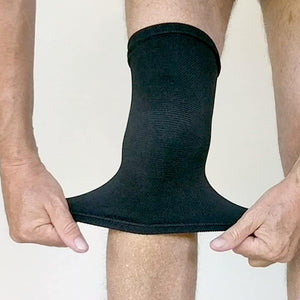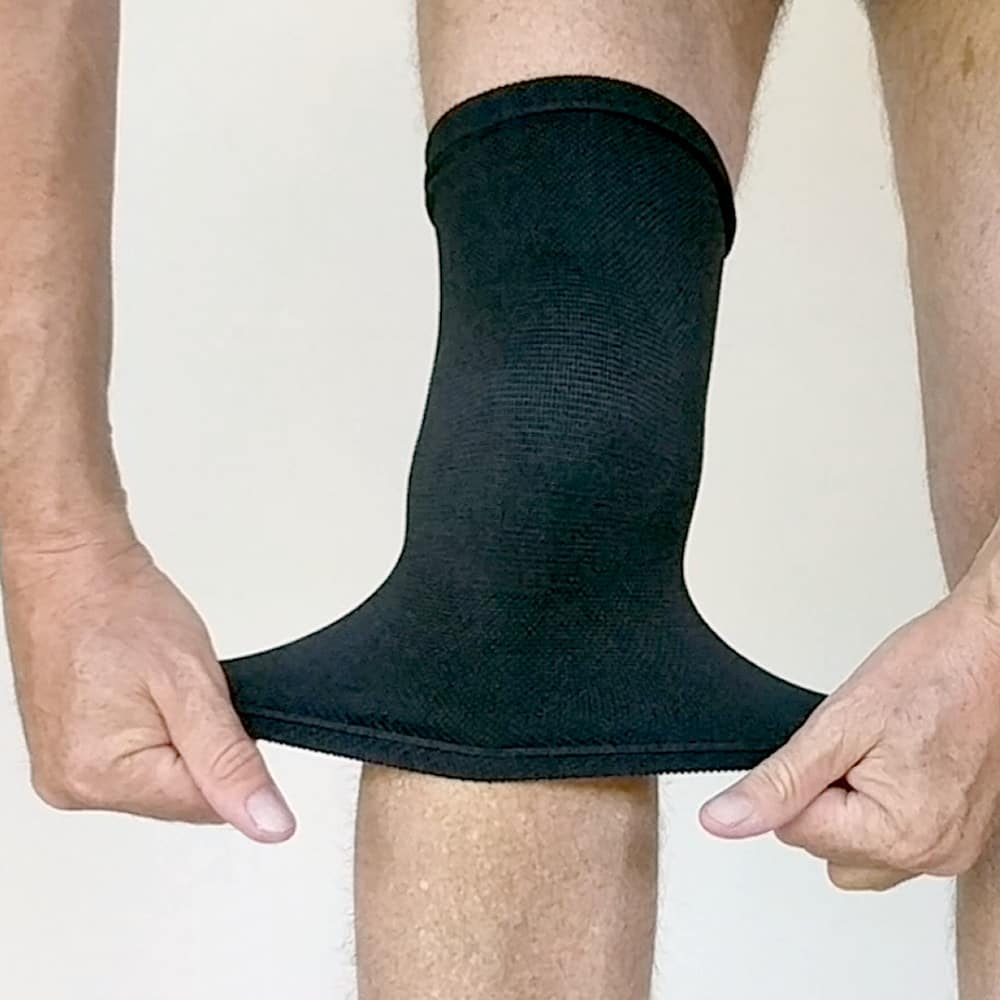
Fibromyalgia - What is Fibromyaglia
Fibromyalgia | Symptoms | Tender Points | Causes | Treatment

What is Fibromyalgia?
It's a Mystery...
It certainly is difficult to diagnose. This is a well known fact because Fibromyalgia (FM) is often misdiagnosed.
It can't be detected or measured by blood tests, biopsies or x-ray scans. Making some health care professionals believe the cause as being entirely “psychosomatic”.
What is known about fibromyalgia syndrome is totally “subjective” and is based on the client patient perspective. What symptoms they're experiencing; pain, numbness, tenderness etc. and to what degree.
It's hard to detect and classify a painful chronic condition with such a wide spectrum of symptoms. Many of which are similar to other ailments and diseases.
This chronic pain disorder affects millions of people worldwide. An estimated 3-6 % of the world population and 10 million in the U.S. alone.
Many are 18 and older but the majority are women between 35 - 45 years of age. According to the NFA, fibromyalgia is more common in women (75-90%) than men.
People with fibromyalgia can suffer a greater degree of physiological distress and lower quality of life than those living with other medical conditions.
Fibromyalgia Symptoms
FM is defined by 3 major group symptoms; muscle pain, tenderness and fatigue.
The disorder is often associated with memory, sleep and mood deterioration.
Some researchers deem the condition arises from overactive nervous system causing an increase in pain sensitivity.
As mentioned above, FM can't be identified by traditional medical diagnostic methods.
In the early stages, fibromyalgia symptoms are so similar to numerous other aliments it's difficult to confirm the condition.
|
Sensations Can Be Felt Throughout the Body |
Symptoms can begin gradually and increase over time. Or they can develop quickly – triggered by a traumatic event, surgery, infection and severe physiological stress.
Physical sensations such a tingling, burning, stiffness or numbness can be felt throughout the body. Extreme sensitivity to touch can be excruciatingly uncomfortable.
The condition can be worst in the morning making it difficult to start the day. Living with the constant effort to endure FM can lead to depression.
9 Fibromyalgia symptoms
1. “fibro fog” Cognitive and memory issues
2. Trouble sleeping
3. Morning stiffness
4. Headaches
5. IBS irritable bowel syndrome
6. Painful menstrual periods
7. Numbness or tingling in hands and feet
8. RLS restless Leg syndrome
9. Depression
Causes of Fibromyalgia
What exactly causes fibromyalgia is not yet fully understood.
There are many triggers and contributing factors to why people end up with this painful and potentially debilitating condition.
Everything from diet related deficiencies to thyroid problems, mycotoxins, trauma and heredity vulnerability.
|
Even mercury toxicity from dental amalgam fillings can be a culprit.
|
Emotional stress can trigger fibromyalgia. So can accidents and injuries.
It is commonly reported, people with FM develop the condition after a traumatic physical or psychological event.
There is a general consensus; patients with the condition mentally process pain differently and can be super sensitive to physical touch.
15 Causes of Fibromyalgia:
- Gluten Intolerance
- Candida overgrowth
- Thyroid problems
- Mycotoxins
- Mercury Toxicity
- Vitamin and mineral deficiencies
- Glutathione deficiency
- Repetitive injury
- Trauma
- Central nervous system problems
- Spinal arthritis
- Autoimmune disorders
- Genetically inherited
- Rheumatic disease
- Autoimmune disorders
18 Tender Trigger Points
There are (18) specific trigger points (9 pairs) doctors test for tenderness and degrees of pain when touched.
These trigger points are found on specific locations of the body. Back of the head, shoulders, elbows, hips and knees.
Applying pressure to these precise points is a method of diagnosing fibromyalgia syndrome.
|
Trigger points can be extremely tender thus “tender points”.
|
Trigger points can be extremely tender thus “tender points”. But trigger points pressed can also cause pain in other areas of the body.
Doctors use this method to test for the condition but it's difficult to know how much pressure to apply. Also the symptoms and extent of response can change from one day to the next.
Making the patient's response to the procedure problematic to chart.
Fibromyalgia Treatment
3 Main ways to treat FM
1. Drugs
2. Alternative remedies
3. Lifestyle habits
Drug medication used consists of the following types; pain relievers, antidepressants and anti-seizure.
Alternative remedies range from dietary supplements and avoiding certain foods, eating a healthy diet, acupuncture, massage therapy, physical exercise, yoga, aerobics, far infrared clothing and stress reduction.
|
Far Infrared Tops & Bottoms make fantastic alternative pain relieving fibro home wear.
Fibro Clothing |
Positive lifestyle habits can have a positive affect on improving your health and reducing the symptoms of fibromyalgia.
Exercising regularly and establishing good sleep habits, eating the right diet and making a conscious effort to reduce stress can make a big difference.













